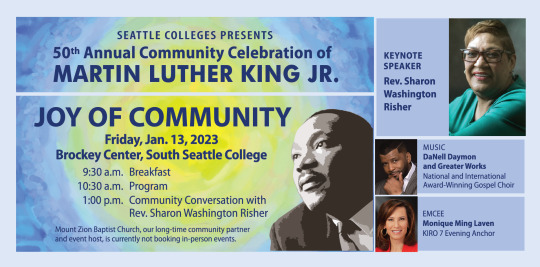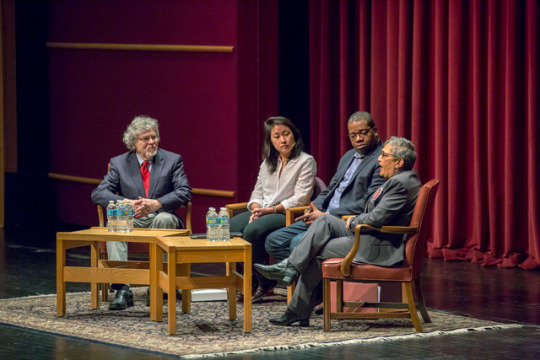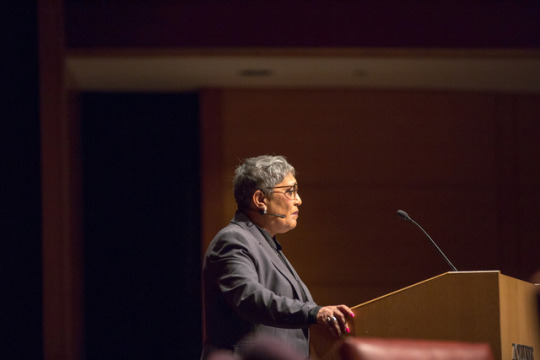#rev Sharon risher
Text
Biden campaigned on abolishing the federal death penalty. But 2 years in, advocates see an 'inconsistent' message#Biden #campaigned #abolishing #federal #death #penalty #years #advocates #inconsistent #message
CNN
—
Two years into his presidency, Joe Biden has taken few substantial steps to live up to his campaign promise to abolish the federal death penalty, disappointing advocates who see a mixed bag of policies from the White House and the Justice Department.
“It makes me feel like maybe he was saying what he knows people like us wanted to hear,” said the Rev. Sharon Risher, whose mother and two…

View On WordPress
0 notes
Text
Biden campaigned on abolishing the federal death penalty. But 2 years in, advocates see an 'inconsistent' message | CNN Politics : Inside US
CNN
—
Two years into his presidency, Joe Biden has taken few substantial steps to live up to his campaign promise to abolish the federal death penalty, disappointing advocates who see a mixed bag of policies from the White House and the Justice Department.
“It makes me feel like maybe he was saying what he knows people like us wanted to hear,” said the Rev. Sharon Risher, whose mother and two…

View On WordPress
0 notes
Photo

Colleagues,
You are cordially invited to the 50th Annual Community Celebration of Martin Luther King Jr. on Friday, Jan. 13 from 9:30 a.m. to 2 p.m. at South Seattle College's Brockey Center.
This year Rev. Sharon Risher will be our keynote speaker. Monique Ming Laven, KIRO 7 Evening Anchor, will be our emcee, and DaNell Daymon and Greater Works gospel choir will join us again with their award-winning music.
Please join us as we reflect, unite, and celebrate the "Joy of Community."
• 9:30 a.m. Breakfast • 10:30 a.m. Program • 1:00 p.m. Community Conversation with Rev. Sharon Washington Risher
*If you haven't already, please RSVP your plans to attend by end of day Jan. 5. This will assist with an accurate headcount for breakfast and program seating.
0 notes
Text
‘I Will Not Say His Name’: Police Try to End Notoriety of Gunmen in Mass Shootings
Some law enforcement officials believe that the most important information they could provide to the public following a mass killing was the identity of the suspected perpetrator. Others believe doing so provides the killer fame, and disrespects families of the victims. If you were a law enforcement executive in Virginia Beach following a mass killing of 12 people, would you: (1) provide the killer’s name once and then always refer to the killer as “the perpetrator” or (2) continually use the killer’s name in public announcements? Why? What are the ethics underlying your decision?
The city manager has not said his name in public. The police chief snarled it just once.
They have called him “that 13th person,” “the suspect” and “the perpetrator.” But since DeWayne Craddock killed a dozen people when he opened fire at a Virginia Beach government office on Friday, top local officials have observed a self-imposed, near total silence about his identity.
“We’re going to mention his name once, and then he will be forever referred to as ‘the suspect’ because our focus now is the dignity and respect to the victims in this case and to their families,” the police chief, James A. Cervera, said on Friday night, hours after the attack.
The intentional effort to deny killers attention represents a sharp departure from how information about mass shootings was disseminated in the era before they became so common. It reflects the growing evidence that perpetrators are driven by a desire for fame. And it is also one of the few concrete steps public officials can take to avert what is known as the copycat effect, especially as new data confirms that many assailants are influenced by information about previous attackers.
The refrain has echoed in the ritual news conferences held in the wake of mass shootings across the country in recent years. While law enforcement officials once believed that the most important information they could provide to the public was the identity of the suspected perpetrator, the attention now is on not humanizing someone who may inspire another.
“I will not say his name today,” Timothy Altomare, chief of the Anne Arundel County Police Department, said last year at a news conference after the shooting at the Capital Gazette’s newsroom in Annapolis, Md.
“I refuse to do it. I wish you wouldn’t do it. But I know better,” he said. “He doesn’t deserve us to talk about him one more second.”
The gunman’s name also went unspoken at the initial law enforcement news conference about the 2017 killings at a church in Sutherland Springs, Tex. “We do not want to glorify him and what he has done,” said Freeman Martin with the Texas Department of Public Safety. And the authorities there vowed to continue to refrain from saying it.
The district attorney in San Diego County, Summer Stephan, has also intentionally held back from publicly citing the name of the man accused of bursting into a synagogue in Poway, Calif., in April, killing one and wounding three on the last day of Passover.
“We want to be clear that this sort of hate, and hateful crimes, will not be tolerated,” Ms. Stephan said. “And this is why I’m not going to even mention his name.”
The approach reaches beyond the United States. New Zealand’s prime minister, Jacinda Ardern, has vowed never to speak the name of the white supremacist charged with killing 51 people at two mosques in her country in March.
“He is a terrorist. He is a criminal. He is an extremist. But he will, when I speak, be nameless,” she told Parliament.
It is hard to pinpoint when some law enforcement officials started to push back against naming killers. After the 2012 Aurora, Colo., theater shooting, the parents of one of the victims, Alex Teves, began a social media campaign to urge people not to use names, called #NoNotoriety. The group’s message has been endorsed by the International Association of Chiefs of Police and the International Police Association.
In 2015, a sheriff in Oregon refused to speak the name of the man who killed nine people at a community college. The next year, James Comey, the F.B.I. director at the time, refused to say the name of the man who killed 49 at a nightclub in Orlando, Fla.
“You will notice that I’m not using the killer’s name and I will try not to do that,” Mr. Comey said, before explaining his reasoning: “Part of what motivates sick people to do this kind of thing is some twisted notion of fame or glory. And I don’t want to be part of that for the sake of the victims and their families. And so that other twisted minds don’t think that this is a path to fame and recognition.”
The refusal to repeat a suspect’s name is not universal. At the newsconference following the shooting at a Pittsburgh synagogue last fall that left 11 people dead, for instance, the authorities said the suspect’s name multiple times. And some people believe that decisions by law enforcement to avoid naming assailants make little difference, particularly for relatives of the victims.
“Not saying his name is not going to take away anything that happened,” said the Rev. Sharon Risher, whose mother died in the attack on a church in Charleston, S.C., in 2015. Ms. Risher said that she makes certain to mention Dylann Roof, the gunman who was sentenced to death in January 2017, during speeches because “you need to know who he is and when this name comes up, the evil this person caused.”
But the approach to not name suspects has recently been more widely embraced, said Chuck Wexler, the executive director of the nonprofit Police Executive Research Forum, as chiefs and sheriffs have come to recognize that mass shooters often kill for the sake of attention.
“The sense is that is part of the reason these people do this, so let’s not feed into that,” Mr. Wexler said.
Explicit evidence of “fame seeking” exists for nearly half of the deadliest mass shootings since 2010, according to Adam Lankford, a criminology professor at the University of Alabama, who presented his data at a National Science Foundation workshop in April. His research found that 90 percent of high-fatality shootings have some circumstantial evidence of a desire for attention.
“The evidence supporting these types of strategies is stronger than ever before because we have more cases and more data,” Dr. Lankford said. “And law enforcement is also increasingly desperate to do something that would make a difference.”
Several law enforcement officials said that their departments have no official policy to avoid uttering a suspect’s name. But it has become the custom, or in some cases, an instinct. At a news conference following the shooting at a manufacturing warehouse in Aurora, Ill., last February that left five people dead and five officers wounded, Kristen Ziman, the city’s police chief, avoided naming the killer more than once.
“My thought was that he’s not deserving for his name to come across my lips and to anyone else’s ears,” Chief Ziman said. “So many people that we have seen in the past have done this for notoriety, or to try to one-up the last body count, for lack of a better terminology. And so it becomes this thing to become notorious, and I don’t want any part in giving notoriety to any human that is going to commit these heinous acts.”
Even inside her own police department she doesn’t say the name during meetings or debriefings.
“I call him ‘the shooter’ or I call him ‘the killer.’ Everyone knows who we’re talking about,” she said.
In Virginia Beach, law enforcement officials released the suspect’s name the morning after the attack.
By then, Rick Smith, the chief of police in Marysville, Wash., noticed the city’s approach immediately when he watched the news conference on Friday. He has lectured other law enforcement officials on the practice since implementing it himself in 2014, after a school shooting in his city that left five people dead, including the gunman.
“In the past, we were trying to do all the right things, cooperating with the media to get information out there, and a certain shooting would get associated with a certain individual’s name,” Chief Smith said. “But there is now a consensus that that is not the appropriate route to go.”
“I absolutely agreed with it,” he said of Chief Cervera’s statement in Virginia Beach. “It was the right approach.”
0 notes
Link
via Latest Content - ELLE
0 notes
Link
The mass shooting at the Tree of Life synagogue in Pittsburgh awakened terrible memories for the Rev. Sharon Risher, whose mother was murdered at the Emanuel African Methodist Episcopal Church in South Carolina three years ago.
from Yahoo News - Latest News & Headlines https://ift.tt/2SzxeHc
0 notes
Link
The mass shooting at the Tree of Life synagogue in Pittsburgh awakened terrible memories for the Rev. Sharon Risher, whose mother was murdered at the Emanuel African Methodist Episcopal Church in South Carolina three years ago.
from Yahoo News - Latest News & Headlines https://ift.tt/2SzxeHc
0 notes
Link
The mass shooting at the Tree of Life synagogue in Pittsburgh awakened terrible memories for the Rev. Sharon Risher, whose mother was murdered at the Emanuel African Methodist Episcopal Church in South Carolina three years ago.
from Yahoo News - Latest News & Headlines https://ift.tt/2SzxeHc
0 notes
Text
Synagogue attack awakens awful memories in Charleston
Synagogue attack awakens awful memories in Charleston
[ad_1]
The mass shooting at the Tree of Life Synagogue in Pittsburgh shocked the nation, but had a special resonance for the Rev. Sharon Risher, whose mother and two cousins were murdered at a historically black church in Charleston, S.C., three years ago.
Risher, 60, had woken up later than usual on Saturday, the morning after a late-night flight from Newburgh, N.Y., to her home in Charlotte,…
View On WordPress
0 notes
Text
Reverend to Trump: Let Pittsburgh be
Reverend to Trump: Let Pittsburgh be
Rev. Sharon Risher, who lost her mother and cousins during a church shooting in Charleston, South Carolina, told CNN's Don Lemon that President Trump visiting Pittsburgh directly after the synagogue shooting is not what the community needs right now.Original Article
View On WordPress
0 notes
Photo


As a trauma chaplain, the Rev. Sharon Washington Risher works with families who have lost loved ones to gun violence. But nothing prepared her for what she needed herself when personal tragedy struck on June 17, 2015: Her mother, two cousins, a childhood friend and five others were killed in a hail of gunfire inside a South Carolina church by self-described white supremacist Dylann S. Roof.
“To say I’m truly overwhelmed with raw emotion 21 months after this tragedy happened is understating what I really feel,” said Risher, speaking Tuesday at Baker Hall in the Zoellner Arts Center. Her talk was presented by Lehigh’s Martin Luther King Jr. committee. Read the rest of our story here.
0 notes